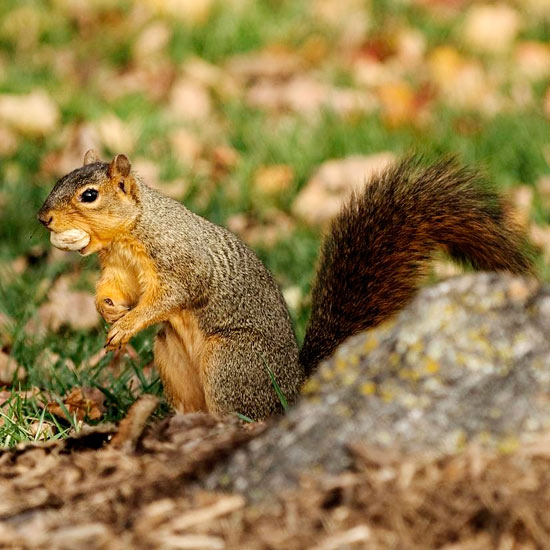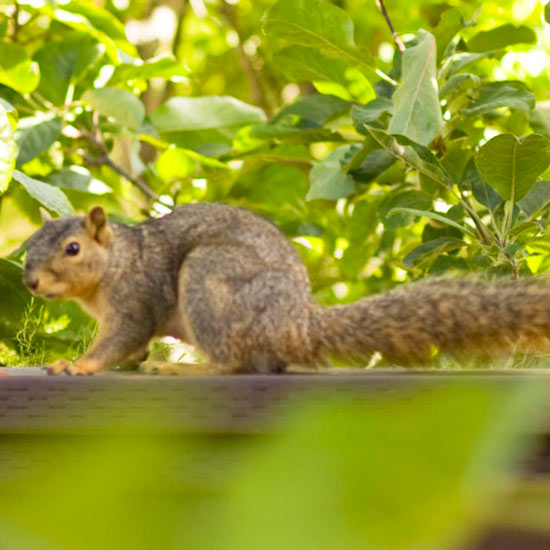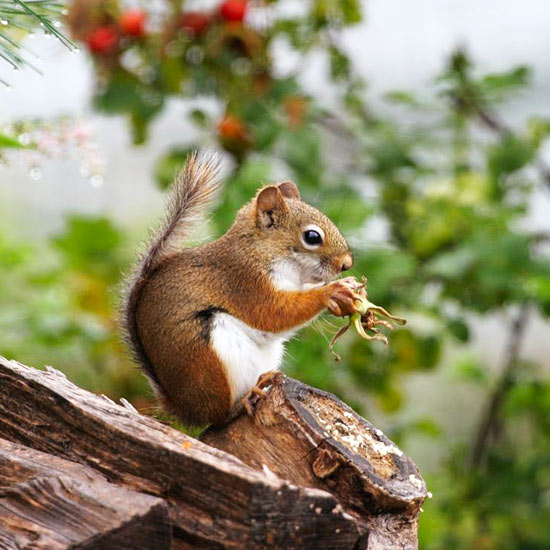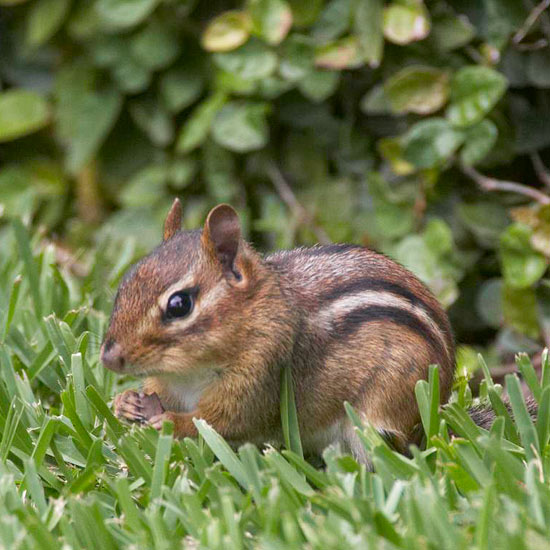






Every single gardener likely has a story about squirrels and chipmunks that have eaten their bulbs or dug up their treasured plants. I have gone into battle with these mischievous creatures plenty of times. One year, I had a large container of annuals on my doorstep, and every night when I came home from work, two or three of the plants would be dug up, lying on the ground withering. I'd plant them again, and the squirrels would dig them up the next day. This went on for some time. Finally I decided to try sprinkling the soil with cayenne pepper, and it worked. Normally you'd have to keep applying the pepper after each rain or every time you water the container, but I found that my squirrel lost interest after that and went on to bother someone else.
continue reading below
As exasperating as these furry neighbors can be, there are a several things we can do to coexist on more friendly terms. First of all, think about why squirrels and chipmunks do what they do. The critters eat nuts, leaves, berries, roots, and seeds. Generally there is enough food for them in our backyard habitats, and they don't become pests. Squirrels spend much of their day burying little stashes of food in multiple places around their territory. That's why they are digging into the nice, soft soil you've just prepared. Chipmunks commonly store their food in one place and are delighted when they happen across a squirrel stash or your bulbs. As you can imagine, when one of these animals finds your bulb plantings, they think they've just arrived at an all-you-can-eat buffet.

In hot, dry summers, squirrels and chipmunks be looking for water, too, and this is when they might get into the birdbath or vegetable garden. I learned about this firsthand one summer evening when the little devils harvested my nice, ripe tomatoes. They climbed a tree to dine in peace, and then dropped the half-eaten red bombs on my dinner guests! I have since made sure there is a clean supply of water for all of the wildlife in my garden, and they've left my tomatoes alone.

Knowledge is power, and daffodils can be your first line of defense. Squirrels and chipmunks do not like the smell or taste of daffodils. Planting them together with your other bulbs can help mask the scent of tulips and help protect them. Bulb cages, bought or homemade with chicken wire, work well for small plantings. If you have a large area to protect, try covering it with chicken wire after your fall planting is done. Tack down the wire and cover it with a thin layer of mulch to hide it. Remove the barrier in early spring as soon as you see your bulbs coming up.
Also, you can help hide your bulbs by spreading an even layer of mulch over the soil after you plant. Squirrels and chipmunks recognize freshly dug soil, so without that mask of mulch, they can see right where you did your bulb planting.
A number of repellents on the market today are not harmful to your family or other backyard wildlife. One such product is Woodstream Get Away Squirrel, which uses capsaicin (the chemical that makes chile peppers hot) as a deterrent. Many gardeners have luck by drenching the soil in plant containers with castor oil repellent, sold for mole control. Other repellents use predator urine to frighten rodents away. All of these products need to be reapplied after a time and certainly after a rain. If you find that squirrels and chipmunks are eating berries, tomatoes, or anything else you had hoped to harvest, covering plants in heavy-duty netting might be your best bet.
Copyright © www.100flowers.win Botanic Garden All Rights Reserved